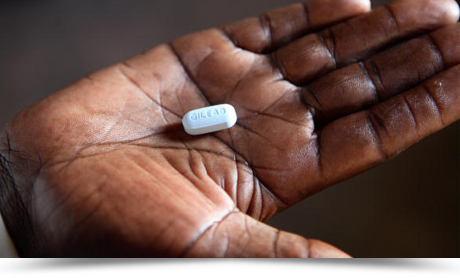Peter Piot has spent much of the past year focused on Ebola — the virus he helped discover as a young Belgian microbiologist in 1976. Yet, on Thursday he switched attention back to the disease he has dedicated most of his career studying: Aids.
The director of the London School of Hygiene & Tropical Medicine said the world must step up its battle against HIV if the big advances of recent years are not to be squandered.
He was speaking as co-chair of a UN-backed commission on Aids whose latest report said there were “impressive achievements” against the disease but warns that progress is fragile, with signs of complacency and even resurgent levels of infection in some population groups.
“We must face hard truths — if the current rate of new HIV infections continues, merely sustaining the major efforts we already have in place will not be enough to stop deaths from Aids increasing within five years in many countries,” said Prof Piot.
He said strong population growth in countries such as Uganda and Kenya was creating new risks as big new generations of youths become sexually active; meanwhile, infection rates were back on the rise among gay men in many American and European cities, the report found.
Widening access to antiretroviral drugs has helped reduce the number of Aids-related deaths by 35 per cent since the peak in 2005 to 1.5m. But Prof Piot said this success — and the perception that HIV need no longer be a death sentence — had blunted prevention efforts.
“Expanding sustainable access to treatment is essential, but we will not treat ourselves out of the Aids epidemic,” said Prof Piot. “We must also reinvigorate HIV prevention efforts, particularly among populations at highest risk.”
The report, by the Lancet Commission, which includes 38 heads of state and a range of other political leaders, health experts, scientists and activists, said it would cost an annual $36bn to achieve the UN goal to end Aids as a public health threat by 2030, compared with the $19bn currently committed.
Prof Piot said middle-income countries must take more responsibility for their own anti-HIV efforts but the world must step up support for poorer countries, especially in sub-Saharan Africa.
The report will add to the jockeying for scarce resources and attention between several competing health challenges as global leaders assess progress towards the Millennium Development Goals — a set of eight targets agreed in 2000 to be achieved by this year.
Prof Piot said combating HIV, malaria and other diseases was one of the goals against which most progress had been made with the help of the Global Fund to Fight Aids, Tuberculosis and Malaria, which committed almost $135bn between 2002 and 2013.
He said the planned replenishment of the fund by international donors after its current financing expires next year would be crucial to maintain momentum.
However, there was a reminder on Thursday of competing demands for money when the publication of Prof Piot’s HIV report coincided with the release of a similar study on the challenge posed by neglected tropical diseases.
NTDs are a category of often obscure conditions, such as visceral leishmaniasis and sleeping sickness, that together affect similar numbers to the “big three” of Aids, TB and malaria.
The Bill & Melinda Gates Foundation has committed over $400m to an alliance called United to Combat NTDs which is aiming to control or eradicate 10 of the diseases by 2020. A dozen big drugmakers, including GlaxoSmithKline and Pfizer, have promised to donate about $17bn of treatments in support of the goal.

Thursday’s NTD report trumpeted progress against Guinea worm, which is on the brink of becoming only the second human disease after smallpox to be eliminated, and others such as trachoma and onchocerciasis. But it also echoed the Aids report in warning that more money was needed — an extra $200m–$300m a year — if goals were to be met.
Similar claims are made by campaigners against malaria and TB. Prof Piot said that, rather than fighting each other for resources, the global health community should look for synergies between different programmes and help strengthen local health systems to cope with the whole range of challenges. “It’s not just about needing more money. We need to be smarter about how we spend it,” he said.
Source: Financial Times
































